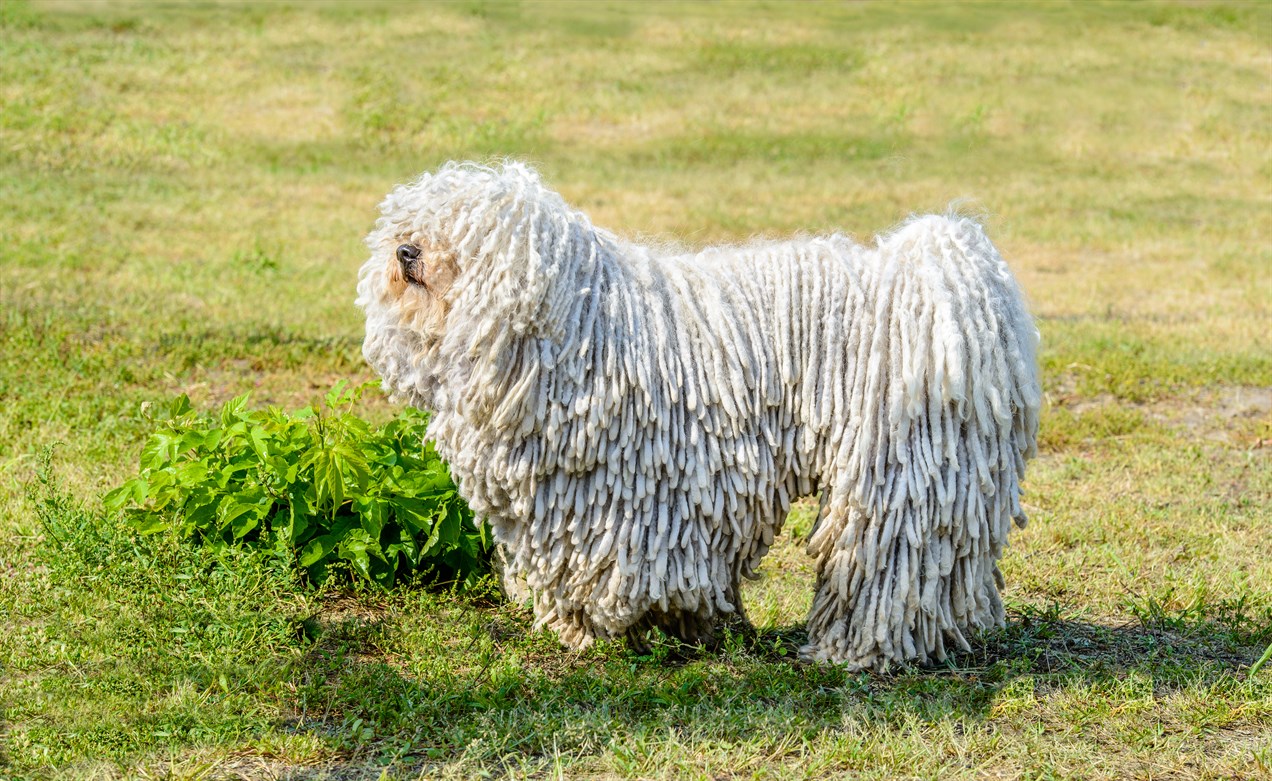Downsides and Disadvantages of Puli Ownership

While Pulis are charming and unique dogs, like any breed, they come with their own set of downsides and disadvantages that prospective owners should consider before bringing one into their home. Here are some potential challenges associated with Puli ownership.
Grooming Requirements
The most well-known feature of the Puli is its corded coat, which requires meticulous care. Grooming a Puli can be a time-consuming and labour-intensive task. Regular bathing, drying, and separating the cords to prevent matting are essential to maintain a healthy coat.
Allergies
Pulis are not considered hypoallergenic, and their dense coat can shed dander and allergens. This can be a concern for individuals with allergies to dog dander.
Independence
Pulis are intelligent but can be independent thinkers. This independence can make training more challenging, especially for novice dog owners. Consistency and patience are essential for successful training.
Exercise Needs
Pulis have high energy levels and require daily exercise and mental stimulation. If their exercise needs are not met, they can become restless and engage in unwanted behaviours.
Separation Anxiety
Pulis are known for their strong bonds with their owners. Leaving them alone for extended periods can lead to separation anxiety, which may result in destructive behaviour or excessive barking.
Protective Nature
While their protective instincts can be an advantage, they may also lead to overprotectiveness or territorial behaviour if not properly managed and socialised.
Coat Management
The Puli's unique corded coat can collect dirt and debris from the environment, making them less than ideal for those seeking a low-maintenance breed. Regular grooming is necessary to keep their coat clean and healthy.
Noise Level
Pulis have a tendency to bark, and they may bark to alert their owners to any perceived threats. This can be a disadvantage in apartment living or in neighbourhoods with noise restrictions.
Health Considerations
While Pulis are generally healthy, they can be prone to certain genetic health issues, such as hip dysplasia and eye conditions. Responsible breeding practises and routine veterinary care are essential to mitigate these risks.
Not a Hypoallergenic Breed
If you or someone in your household has allergies to dog dander, the Puli may not be the best choice, as their coat can shed allergens.
In summary, while Pulis can be loyal and affectionate companions, their unique characteristics and needs may not be suitable for everyone. Prospective owners should carefully consider the downsides and challenges associated with Puli ownership, particularly in terms of grooming, exercise, training, and their strong need for human interaction. It's essential to be prepared for the commitment and responsibilities that come with owning this distinctive breed.